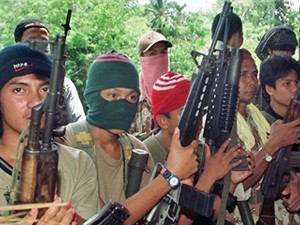CAGAYAN DE ORO CITY, Philippines – With his six-year term about to end in three months, Amnesty International Philippines (AIP) expressed dismay with the performance of President Aquino in addressing and stopping human rights violations (HRVs).
Although the government has made strides in promoting human rights in the country through the passage of laws that promote human rights, government efforts have fallen short of making the country HRV-free, AIP chair Ritzlee Santos III said.
During Aquino’s presidency, laws such as the Anti-Enforced or Involuntary Disappearance Act of 2012 was passed.
But Santos said even with such statutes, decade-old cases of torture, enforced disappearances and extrajudicial killings have remained unsolved with many more occurring under the Aquino administration.
“The (AIP) is disappointed (in the government) for not addressing these cases,” he said, adding that even the Freedom of Information (FOI) bill has not seen the light of day under the Aquino administration.
During the first 100 days of Aquino, AIP rated his performance as “pasang awa” (barely passing) for human rights records although the group recognized the “small feat” his administration made, such as passing relevant laws.
In a report provided to journalists here, AIP – citing various sources – said the “numbers of EJE (extrajudicial executions) are staggering and cases remain unresolved, perpetrators are not brought to justice, families remain clueless and individuals-at-risk hanging by a thread.”
For instance, from July 2010, when Aquino assumed office, to September 2015, there were at least 438 recorded cases of EJE, and 31 cases of enforced disappearances, the human rights organization said.
AIP said in many of these cases, the culprits were identified as security personnel of corporations and members of the state force but none of them had been penalized for their deeds.
Among those made target, she said, were members of the indigenous communities and rural folk.
Quoting a data from the human rights group Karapatan, AIP said since 2010, 53 cases of killings of indigenous people’s leaders had been recorded. None of these cases have been resolved and added to the 142 cases of human rights violations that Aquino inherited from the Arroyo government.
Also, enforced disappearances had been common under the Aquino government.
“Enforced disappearances remain common among activists, especially those from the human rights sector, journalists and indigenous peoples, despite the passage of the Anti-Enforced Disappearance Act in 2012,” the AIP report added. SFM


